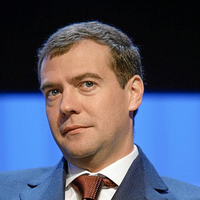In recent weeks, pundits, diplomats and assorted foreign policy wonks have started raising the alarm on U.S.-Russia relations, with the Obama administration's much-trumpeted "reset" seeming to be increasingly under threat. A recent travel ban by the U.S. State Department on certain Russian officials believed to be involved in the death of lawyer Sergei Magnitsky elicited an angry response from Moscow threatening cooperation in areas ranging from Afghanistan to North Korea. Russia's ambassador to NATO, Dmitry Rogozin, has started grousing about U.S. missile defense plans again. And all of this comes against a backdrop of increasing criticism from Prime Minister Vladimir Putin and his factional supporters in the Russian government about U.S. policy in Libya and Syria. Predictably, this has resulted in a stream of op-eds in the Western press raising the specter of a "new Cold War."
So is the concern justified?
In a word, no. There has been no major break in U.S.-Russian relations, nor is one likely. What we are seeing is yet another one of Russia's periodic succession crises in the run-up to next year's presidential election. As Russia is in functional terms a nondemocratic state, there is no effective and broadly accepted mechanism for ensuring an orderly transfer of power, and arguably there hasn't been one since the days of the tsar. The selection and installation of a new ruler tends to be a perilous affair for everyone involved. It also tends to make Russian foreign policy highly reactive and aggressive until the crisis passes.

